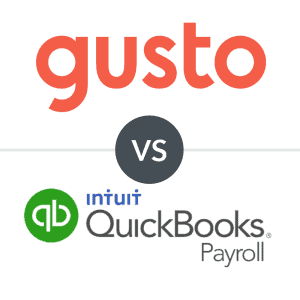This guide addresses many of the questions you may have about hiring a household employee, including how to pay a nanny legally and how much to pay a nanny.
Our content reflects the editorial opinions of our experts. While our site makes money through
referral partnerships, we only partner with companies that meet our standards for quality, as outlined in our independent
rating and scoring system.

If you’ve never paid a household employee before, you might have questions about how to pay a nanny. Fortunately for you, paying your nanny the legal way is pretty simple.
Are Nannies Independent Contractors?
In most cases, a nanny is considered a household employee. According to the IRS, a household employee is:
- Someone who performs services in or around your home
- Someone who works for you, and you control what work they do and how it is done
If your nanny is a household employee, you will typically have to pay nanny taxes. These taxes include social security and Medicare taxes (FICA), and Federal Unemployment Taxes (FUTA).
How Much Are Nanny Taxes?
For 2023, households that pay a household employee $2,600 or more during the year will be required to withhold and pay Social Security and Medicare taxes. These taxes are equal to 12.4% of cash wages and are split evenly between you (the employer) and your nanny.
Household employers that pay an employee $1,500 or more in a calendar quarter will be required to pay FUTA tax. You may also be required to pay state unemployment taxes. FUTA tax is 6% of cash wages. This applies to the first $7,000 in wages earned during the calendar year (often called the federal or FUTA wage base).
There are some rare instances where you are not required to pay nanny taxes. You aren’t required to pay nanny taxes if your nanny is:
- Your spouse
- Your child who is under the age of 21
- An employee under the age of 18 who does not provide nanny services as their principal occupation
- An employee under the age of 18 who is a student
If your parent is caring for your child, you are not required to pay nanny taxes if both of the following conditions are met:
- Your child is under the age of 18 OR has a physical or mental condition that requires care for at least four consecutive weeks in a calendar quarter, AND
- You’re divorced and haven’t remarried, you’re a widow/widower, or your spouse has a physical or mental condition that prevents them from caring for the child for at least four consecutive weeks in a calendar quarter
The Benefits Of Paying A Nanny Legally
The extra time and expense associated with paying a nanny may seem like a burden, but taking the time to do things legally also offers several benefits to you as a household employer. Here’s why you should pay your nanny the legal way.
Avoid Hefty Penalties
The IRS makes it clear that most household employers are required to pay payroll taxes on their household employees. Failure to do so may result in tax penalties and interest that could cost you thousands of dollars, in addition to paying the taxes that are owed.
Additionally, paying your nanny under the table could result in labor law violations that result in additional financial penalties and potential legal issues. This can be avoided by following the laws when it comes to paying your nanny.
Benefits For Your Nanny
Paying your nanny legally offers benefits to your household help.
As an employee, your nanny will be able to receive benefits including unemployment, Medicare, and Social Security in the future. Additionally, withholding payroll taxes from your nanny’s paychecks will prevent them from having to deal with the hassles of filing as a self-employed individual — and can potentially help them avoid a big tax bill come April.
Tax Benefits For You
As a household employer, you may be able to claim tax credits and deductions to help offset your income taxes. For example, the Child and Dependent Care Tax Credit can be applied to your nanny’s wages, giving you a tax break of up to $3,000 for a single child or up to $6,000 for two or more children. If you’re enrolled in a Dependent Care Account, you can save up to approximately $5,000 on your taxes.
How Much Should A Nanny Get Paid?
According to Care.com, the average wage for a nanny in 2023 is $18.40 per hour. However, this number may be higher or lower based on where you live. In cities where the cost of living is much higher, nanny salaries may average $21 or more per hour.
You should also consider:
- The number of children that will be cared for
- Your nanny’s experience level
- CPR or other first aid certifications
- Any additional household responsibilities (cleaning, errands, etc,)
Do I Need An EIN Number To Pay A Nanny?
According to the IRS: “Anyone who performs services for you is your employee if you can control what will be done and how it will be done.” Since you will be paying, setting hours for, and overseeing the responsibilities of your nanny, they are considered a household employee.
As an employer, there are specific tax requirements that now apply to you. For tax administration purposes, you will need an Employer Identification Number (EIN).
Fortunately, applying for and receiving an EIN on the IRS website takes just a few minutes.
- Set your legal structure to “Sole proprietor”
- Select “household employer”
- Enter your personal information
- Add your physical and mailing address
- Add state, county, and hire date
- Select whether you want to receive your EIN instantly (via email) or in up to four weeks (by mail)
How To Legally Pay A Nanny In 10 Steps
Once you’ve hired your nanny, it’s time to figure out how to pay them properly. This ensures they get compensated for their hard work, while also making sure you follow labor and tax laws. Here’s how to pay a nanny in ten easy steps.
#1: Get An EIN Number
See the section above for more detailed information.
#2: Report Your New Hire
Within 20 days of hiring your nanny, you will need to submit a W-4 to your appropriate state agency to report your new hire.
#3: Determine Your Nanny's Salary
See the section above for more detailed information.
#4: Send Your Nanny A W-4 Form & I-9 Form
Your nanny will need to fill out a Form W-4, Employee’s Withholding Certificate. Once completed, you will use this to accurately calculate and withhold federal taxes.
Additionally, your nanny should also fill out Form I-9, Employment Eligibility Verification. This form does not need to be submitted to the IRS or USCIS, but you must have it completed and in your possession before your nanny’s first day of work.
#5: Track Hours Or Calculate Salary Wages
Use a free or paid time tracking software or app to easily keep track of your nanny’s hours or divide your nanny’s total salary by 12 to determine their wages each paycheck.
#6: Withhold Federal & State Taxes
Ensure that the employee’s share of Social Security taxes (6.2% of cash wages) and the employee’s share of Medicare taxes (1.45% of cash wages) are withheld. Your nanny may also request you to withhold federal income taxes.
Still scratching your head when it comes to payroll taxes? Find out everything you need to know before you cut your first paycheck with the ultimate guide to payroll taxes for small businesses.
State income and payroll taxes are a little more complicated. Make sure to research the income and payroll tax laws in your state to properly withhold taxes from your nanny’s paycheck.
You can start by checking out our specific tax guides, including:
#7: Pay Your Nanny
After calculating your nanny’s wages and deducting federal and state taxes, you will need to issue your nanny a paycheck.
Learn more about our favorite payroll software below.
#8: Pay Payroll Taxes & Complete Year-End Tax Forms
Any tax deductions you withheld from your nanny’s paychecks are your responsibility when it comes to paying the IRS. You also need to pay your share of social security taxes (6.2% of cash wages), your share of Medicare taxes (1.45% of cash wages), and FUTA taxes (6% of wages for the first $7,000 earned in a calendar year). Stay on track for tax season with our payroll year-end checklist.
#9: Keep Detailed Payroll Records
You need to keep careful records in the event of an IRS audit to help you keep track of your expenses. It’s also the law under the Fair Labor Standards Act to keep these records for a minimum of three years. Learn more about how long to keep payroll records to make sure you’re following state and local laws.
#10: Don't Forget About Payroll Deductions
You may have additional payroll deductions to take from your nanny’s paycheck including garnishments for unpaid child support or debt. You’ll receive notifications regarding these deductions.
The Best Payroll Software For Paying Your Nanny
Now that you know the basics of how to legally pay a nanny, let’s talk about some software that can help you out.
The best payroll software for small businesses will all offer helpful features for those employing nannies in their homes. There are, however, more specific payroll programs that are tailored toward nanny paychecks.
The best options for nanny payroll software are:
The Bottom Line On How To Pay A Nanny
Paying a nanny legally is the best way to ensure you comply with tax and labor laws and regulations. This helps prevent you from being penalized for failure to pay taxes on your employees as required. Additionally, paying your nanny the right way offers advantages to them — such as unemployment benefits — and helps ensure they get paid on time, every time.
If you’re new to payroll or paying a household employee, don’t worry — there are plenty of resources available to help make sure you get it right.
Cut out the guesswork by opting for a nanny payroll software that offers loads of benefits, from time tracking and tax calculations to storing crucial payroll records and making sure you file and pay your taxes on time to avoid hefty penalties and interest.
How To Pay A Nanny FAQs
How to pay a nanny if you nanny share?
If you opt for a nanny share, you should continue to pay your nanny separately as well as withhold the appropriate federal and state taxes to remit to the IRS.
Can I pay my nanny through Venmo?
It is possible to pay your nanny through Venmo, and there are even payroll software options that allow you to do this easily. No matter how you pay your nanny, make sure that you have correctly calculated wages and withholdings and keep accurate payroll records.













